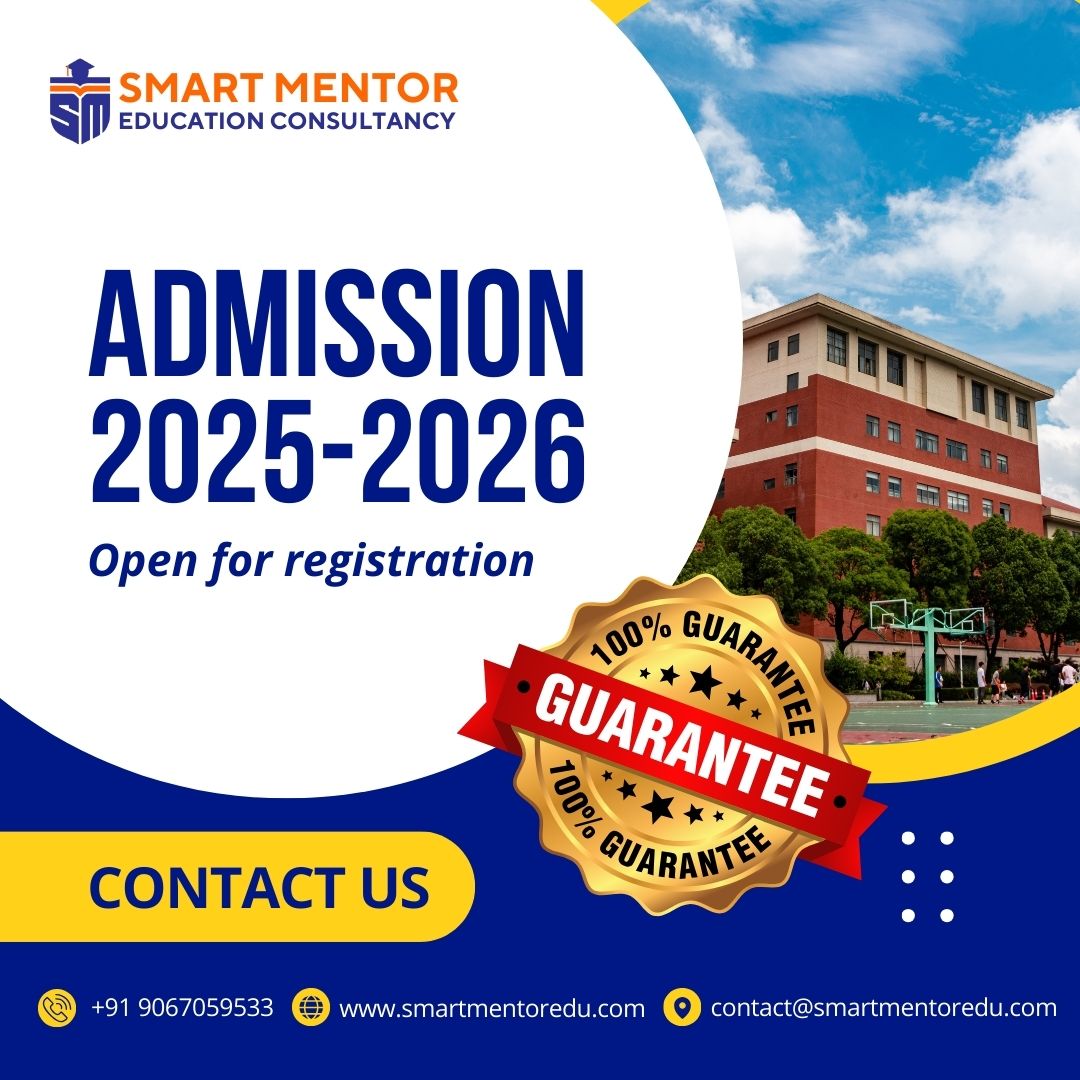

National Eligibility cum Entrance Test (NEET-UG) – Comprehensive Guide
The National Eligibility cum Entrance Test for Undergraduates (NEET-UG) is India’s unified medical entrance examination conducted by the National Testing Agency (NTA). It serves as the single gateway for admission to MBBS, BDS, AYUSH (BAMS, BHMS, BUMS), and other medical courses across all government, private, and deemed universities in India.
NEET-UG Exam Pattern
- Mode: Pen and Paper-based Test (Offline)
- Duration: 3 hours 20 minutes (200 minutes)
- Total Questions: 200 (180 to be attempted with choice in sections)
- Subjects Covered:
- Physics (50 questions, attempt 45)
- Chemistry (50 questions, attempt 45)
- Biology (Botany & Zoology – 100 questions, attempt 90)
- Marking Scheme:
- +4 for each correct answer
- -1 for each incorrect answer (negative marking)
- 0 for unanswered questions
- Maximum Marks: 720 (180 questions × 4 marks)
- Language Options: Available in 13 languages (English, Hindi, Assamese, Bengali, Gujarati, Kannada, Malayalam, Marathi, Odia, Punjabi, Tamil, Telugu, and Urdu)
NEET-UG Syllabus and Important Topics
1. Physics
The NEET Physics syllabus covers Class 11 and 12 concepts with emphasis on application and problem-solving:
Class 11 Topics:
- Physical World and Measurement
- Kinematics
- Laws of Motion
- Work, Energy and Power
- Motion of System of Particles and Rigid Body
- Gravitation
- Properties of Bulk Matter
- Thermodynamics
- Behaviour of Perfect Gas and Kinetic Theory
- Oscillations and Waves
Class 12 Topics:
- Electrostatics
- Current Electricity
- Magnetic Effects of Current and Magnetism
- Electromagnetic Induction and Alternating Currents
- Electromagnetic Waves
- Optics
- Dual Nature of Matter and Radiation
- Atoms and Nuclei
- Electronic Devices
- Communication Systems
High-Yield Physics Topics:
- Mechanics (Kinematics, Laws of Motion, Work-Energy)
- Electrostatics and Current Electricity
- Optics (Ray and Wave Optics)
- Modern Physics
- Thermodynamics
2. Chemistry
The Chemistry section is divided into Physical, Organic, and Inorganic Chemistry:
Physical Chemistry:
- Some Basic Concepts of Chemistry
- States of Matter
- Atomic Structure
- Chemical Bonding and Molecular Structure
- Chemical Thermodynamics
- Solutions
- Equilibrium
- Redox Reactions
- Electrochemistry
- Chemical Kinetics
- Surface Chemistry
Organic Chemistry:
- Purification and Characterization of Organic Compounds
- Basic Principles of Organic Chemistry
- Hydrocarbons
- Organic Compounds Containing Halogens
- Organic Compounds Containing Oxygen
- Organic Compounds Containing Nitrogen
- Polymers
- Biomolecules
- Chemistry in Everyday Life
Inorganic Chemistry:
- Classification of Elements and Periodicity
- General Principles and Processes of Isolation of Elements
- Hydrogen
- s-Block Elements
- p-Block Elements
- d and f Block Elements
- Coordination Compounds
- Environmental Chemistry
High-Yield Chemistry Topics:
- Organic Chemistry Reaction Mechanisms
- Chemical Equilibrium
- Coordination Compounds
- Electrochemistry
- p-Block Elements
3. Biology (Botany & Zoology)
Biology carries the highest weightage with 100 questions:
Botany Topics:
- Diversity in Living World
- Structural Organization in Plants
- Cell Structure and Function
- Plant Physiology
- Reproduction in Plants
- Genetics and Evolution
- Biology and Human Welfare (Plant Part)
- Biotechnology and Its Applications (Plant Part)
- Ecology and Environment
Zoology Topics:
- Diversity in Living World
- Structural Organization in Animals
- Cell Structure and Function
- Human Physiology
- Reproduction in Humans
- Genetics and Evolution
- Biology and Human Welfare (Animal Part)
- Biotechnology and Its Applications (Animal Part)
- Ecology and Environment
High-Yield Biology Topics:
- Human Physiology (Digestive, Respiratory, Circulatory Systems)
- Cell Biology and Cell Division
- Genetics and Evolution
- Plant Physiology (Photosynthesis, Respiration, Plant Hormones)
- Reproductive Health and Human Reproduction
Preparation Strategy for NEET-UG
1. Recommended Study Materials & Books
Physics:
- NCERT Physics Class 11 & 12 (Fundamental resource)
- Concepts of Physics by H.C. Verma
- Objective Physics by DC Pandey
- NCERT Exemplar Problems
- Previous Years’ NEET Questions
Chemistry:
- NCERT Chemistry Class 11 & 12 (Must read thoroughly)
- Physical Chemistry by O.P. Tandon
- Organic Chemistry by Morrison & Boyd (Reference)
- Concise Inorganic Chemistry by J.D. Lee (Reference)
- Modern’s ABC of Chemistry
- Previous Years’ NEET Questions
Biology:
- NCERT Biology Class 11 & 12 (Primary and sufficient resource)
- Objective Biology by Dinesh
- Trueman’s Biology
- Biology by Pradeep Publications
- Previous Years’ NEET Questions
- NCERT Exemplar Problems
2. Subject-wise Preparation Tips
Physics
- Master fundamental concepts before solving numerical problems
- Practice numerical problems extensively
- Focus on derivations and understanding formulas
- Create formula sheets for quick revision
- Solve previous years’ questions repeatedly
- Practice diagrams for topics like ray optics, current electricity
- Time yourself while solving numerical problems
Chemistry
- Memorize NCERT content thoroughly, especially for Inorganic Chemistry
- Create reaction mechanism flowcharts for Organic Chemistry
- Practice chemical equations and balancing
- Focus on named reactions in Organic Chemistry
- Learn periodic table trends thoroughly
- Create notes for coordination compounds and their properties
- Practice numerical problems in Physical Chemistry regularly
Biology
- Read NCERT line by line (extremely important)
- Create diagrams and flowcharts for complex processes
- Learn biological terminologies and scientific names
- Focus on structural details and functions
- Create comparison tables for similar concepts
- Practice labeling diagrams
- Revise regularly as Biology requires memorization
3. Time Management Strategies
- Allocate time based on your strengths and weaknesses
- Suggested daily division:
- Physics: 2-3 hours
- Chemistry: 2-3 hours
- Biology: 3-4 hours
- Divide study sessions into theory and problem-solving
- Take short breaks every 45-50 minutes
- Schedule regular revision slots
- Keep 1-2 months before the exam exclusively for revision and mock tests
- Practice with a timer to improve speed
4. Mock Tests and Previous Papers
- Take at least 30-40 full-length mock tests before the exam
- Analyze each mock test performance thoroughly
- Maintain an error log to track repeated mistakes
- Solve previous 10 years’ NEET question papers
- Take subject-wise tests regularly
- Simulate actual exam conditions during practice tests
- Time your performance for each section
NEET-UG Preparation Timeline
2 Years Before Exam (Class 11 Beginning)
- Focus on building strong fundamentals
- Cover Class 11 syllabus thoroughly
- Start solving basic problems
- Build regular study habits
- Focus on understanding concepts
1 Year Before Exam (Class 12 Beginning)
- Complete Class 12 syllabus alongside board preparation
- Begin revision of Class 11 topics
- Start solving previous years’ questions
- Take subject-wise tests
- Create concise notes for future revision
6 Months Before Exam
- Complete entire syllabus if not done already
- Focus on revising difficult topics
- Take subject-wise and full-length mock tests
- Analyze weak areas and work on them
- Revise NCERT thoroughly
3 Months Before Exam
- Full-length revisions of all subjects
- Take mock tests every third day
- Focus on high-yield topics
- Revise formulas, equations, and diagrams
- Practice time management in tests
1 Month Before Exam
- Take full mock tests every alternate day
- Quick revisions of entire syllabus
- Focus on accuracy and time management
- Revise error log and frequently missed topics
- Mental preparation and stress management
Qualifying Criteria
Qualifying Percentile Requirements
- General Category: 50th Percentile
- OBC/SC/ST Category: 40th Percentile
- General-PwD: 45th Percentile
- SC/ST/OBC-PwD: 40th Percentile
Counseling Process After NEET-UG
- All India Quota (AIQ): 15% seats in state government medical/dental colleges
- State Quota: 85% seats in state government medical/dental colleges
- Deemed/Central Universities: 100% seats through central counseling
- Private Medical/Dental Colleges: State-wise counseling for state quota seats
- Armed Forces Medical College (AFMC): Separate counseling after NEET qualification
- AIIMS/JIPMER: Now part of NEET counseling process
Preparation Tips for Different Phases of NEET Preparation
Foundation Phase (Class 11)
- Build strong conceptual understanding
- Read NCERT thoroughly
- Practice basic problems
- Create detailed notes
- Focus on understanding rather than memorization
Intermediate Phase (Class 12 First Half)
- Continue building on concepts
- Start connecting topics across subjects
- Begin solving moderate difficulty problems
- Take chapter-wise tests
- Revise Class 11 topics periodically
Advanced Phase (6-8 Months Before Exam)
- Complete entire syllabus
- Solve complex problems
- Take subject tests and analyze performance
- Begin revision cycles
- Create quick revision notes
Final Phase (3 Months Before Exam)
- Focus exclusively on NEET preparation
- Take full-length mock tests regularly
- Multiple revision cycles
- Practice time management
- Focus on high-yield topics
Common Challenges and Solutions
Challenge: Vast Syllabus
- Solution: Break down into smaller goals, create a structured timetable, use the Pomodoro technique
Challenge: Memory Retention (Especially for Biology)
- Solution: Spaced repetition, create mind maps, teach concepts to others, use mnemonics
Challenge: Physics Numerical Problems
- Solution: Master fundamentals first, categorize problems by concept, practice daily, maintain a formula book
Challenge: Chemistry Reactions and Mechanisms
- Solution: Create flowcharts, practice writing mechanisms repeatedly, understand rather than memorize
Challenge: Time Management in the Exam
- Solution: Regular timed practice, develop question selection strategy, learn when to move on
Challenge: Test Anxiety
- Solution: Regular mock tests, meditation, proper sleep schedule, positive visualization
Conclusion
NEET-UG is a highly competitive exam that demands consistent preparation, strong fundamentals, and strategic approach. Success in NEET requires not just hard work but smart work – focusing on high-yield topics, regular practice, and multiple revisions. NCERT remains the gold standard for preparation across all three subjects.
The key differentiator between average and top performers is often not just knowledge but exam temperament, time management, and strategic question selection. With disciplined preparation spanning 1-2 years, regular mock tests, and focus on fundamentals, aspirants can maximize their chances of securing a seat in their desired medical college.
Remember, NEET is a marathon, not a sprint. Consistency trumps intensity, and understanding concepts is more important than rote memorization. Start early, stay focused, and approach the exam with confidence built on thorough preparation.
Interested in Direct Admission in India?
Get Direct Admission in India’s Top Universities / College.





